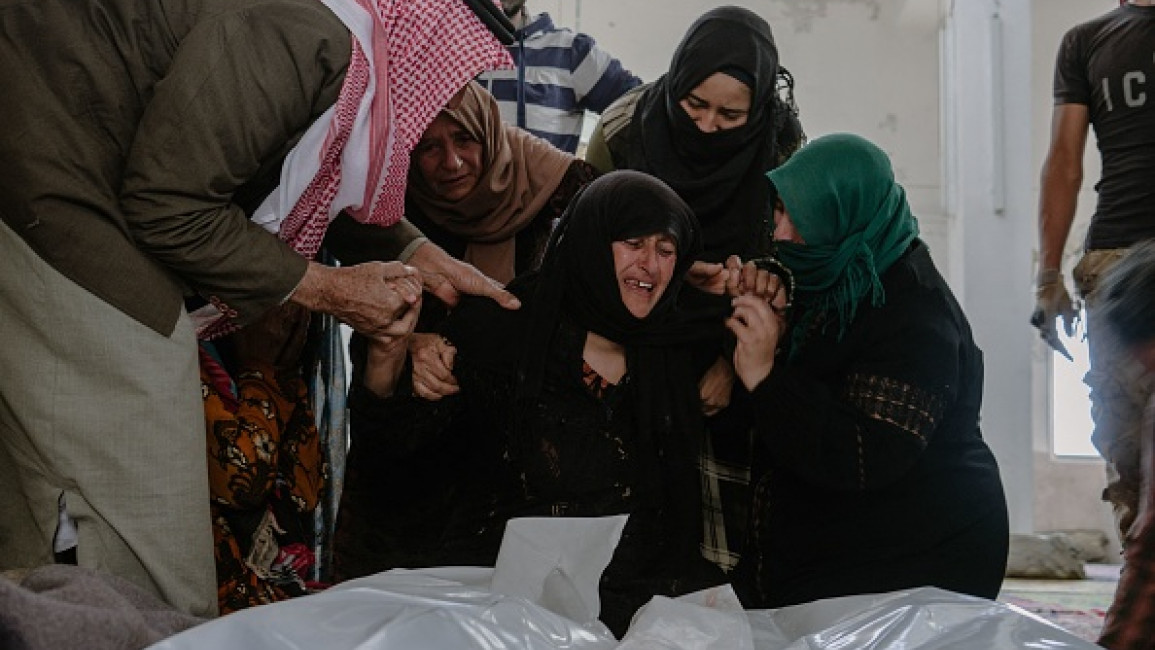Syrian regime uses cluster and incendiary munitions in Idlib: HRW
The Syrian regime used cluster munitions – an indiscriminate weapon banned by most countries – in an attack on northwest Syria last month, killing two civilians and injuring 12 others, a Human Rights Watch (HRW) report revealed on Monday, 6 November.
The attack on 6 October hit the town of Termanin in northern Idlib, killing two and injuring nine others upon impact – the next day, a nine-year-old boy picked up a munition that failed to detonate earlier, injuring him and three others.
The strike came as regime forces and Russia have carried out a punishing bombing campaign against northwest Syria since 5 October, killing at least 70 and injuring at least 338. The aerial assault also displaced an additional 120,000 people, many of whom have been displaced several times before by regime-led violence.
Northwest Syria is the last opposition-held enclave in Syria, home to around 4.6 million civilians and controlled by the former al-Qaeda affiliate Hayat Tahrir al-Sham (HTS).
"Syrian government forces' use of cluster munitions during its bombardment of opposition-held areas proves just how tragically indiscriminate these weapons are and their devastating legacy of lasting harm," Adam Coogle, deputy Middle East director at HRW, said.
Cluster weapons release up to hundreds of small bombs indiscriminately over a wide area, some of which can fail to detonate for years or even decades. Unexploded munitions pose a particular danger to children, who often mistake the small metal balls for toys and pick them up.
HRW has previously documented the Syrian regime's use of cluster munitions, including a November 2022 attack on four camps for internally displaced people in Idlib.
HRW said that Russia also used incendiary weapons during its month-long bombing campaign, launching incendiary rockets at civilian homes, causing at least one death of a 13-year-old girl and burns to her 11-year-old sister.
The regime's campaign against northwest Syria has been justified as retaliation for the 5 October drone attack on the Homs military academy, which killed over 100.
The regime blamed "terrorist groups," namely HTS, for the attack and began its bombing campaign on the same day as the drone attack.
Civilians have borne the brunt of the regime and Russia's bombings, with Syrian civil defence saying that schools, markets and at least 23 health facilities have been targeted.
According to HRW, some residents of Termanin chose to sleep in open fields for several days for fear that their homes would be targeted by regime bombing.
The UN Commission of Inquiry on Syria (COI) said on 24 October that fighting in Syria had reached its "worst point in four years" and called for an urgent end to hostilities nationwide.


![A pro-Palestinian encampment at Columbia persists, despite recent arrests. [Brooke Anderson/The New Arab]](/sites/default/files/styles/image_330x185/public/2024-04/417084c8-3251-4705-8422-058fca1d5709.jpg?h=ddb1ad0c&itok=T2cXVfXy)
